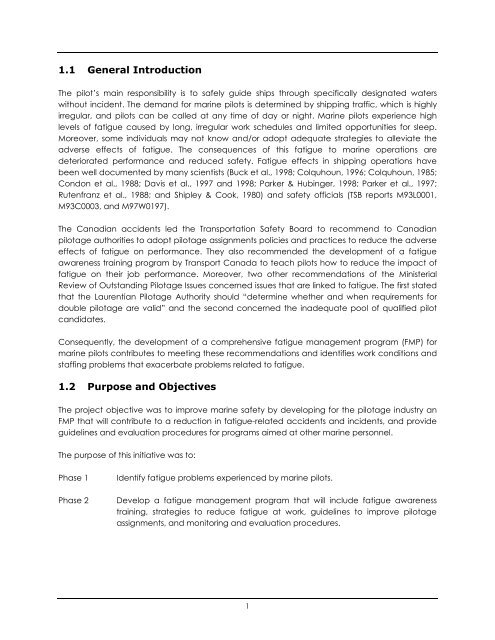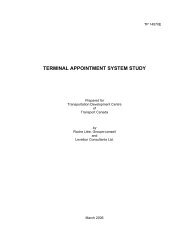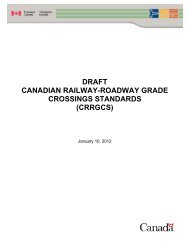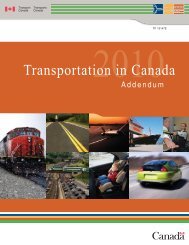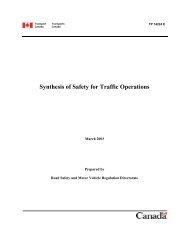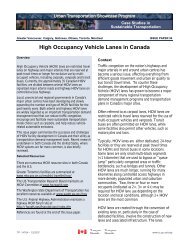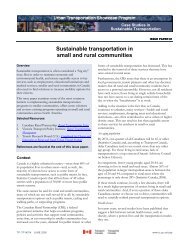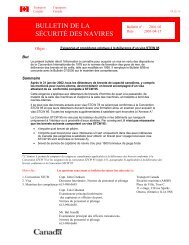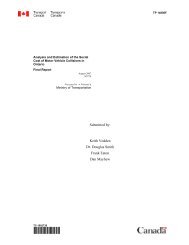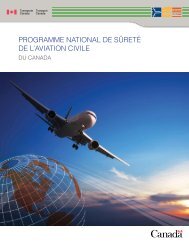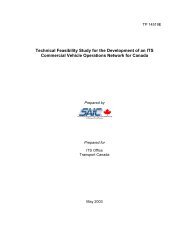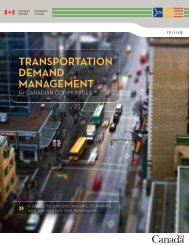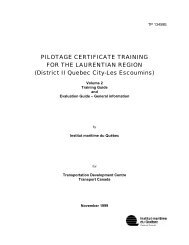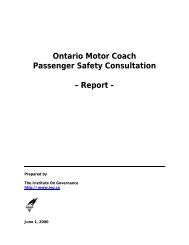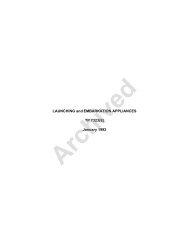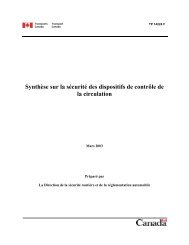Fatigue Management Program for Canadian Marine Pilots
Fatigue Management Program for Canadian Marine Pilots
Fatigue Management Program for Canadian Marine Pilots
You also want an ePaper? Increase the reach of your titles
YUMPU automatically turns print PDFs into web optimized ePapers that Google loves.
1.1 General Introduction<br />
The pilot’s main responsibility is to safely guide ships through specifically designated waters<br />
without incident. The demand <strong>for</strong> marine pilots is determined by shipping traffic, which is highly<br />
irregular, and pilots can be called at any time of day or night. <strong>Marine</strong> pilots experience high<br />
levels of fatigue caused by long, irregular work schedules and limited opportunities <strong>for</strong> sleep.<br />
Moreover, some individuals may not know and/or adopt adequate strategies to alleviate the<br />
adverse effects of fatigue. The consequences of this fatigue to marine operations are<br />
deteriorated per<strong>for</strong>mance and reduced safety. <strong>Fatigue</strong> effects in shipping operations have<br />
been well documented by many scientists (Buck et al., 1998; Colquhoun, 1996; Colquhoun, 1985;<br />
Condon et al., 1988; Davis et al., 1997 and 1998; Parker & Hubinger, 1998; Parker et al., 1997;<br />
Rutenfranz et al., 1988; and Shipley & Cook, 1980) and safety officials (TSB reports M93L0001,<br />
M93C0003, and M97W0197).<br />
The <strong>Canadian</strong> accidents led the Transportation Safety Board to recommend to <strong>Canadian</strong><br />
pilotage authorities to adopt pilotage assignments policies and practices to reduce the adverse<br />
effects of fatigue on per<strong>for</strong>mance. They also recommended the development of a fatigue<br />
awareness training program by Transport Canada to teach pilots how to reduce the impact of<br />
fatigue on their job per<strong>for</strong>mance. Moreover, two other recommendations of the Ministerial<br />
Review of Outstanding Pilotage Issues concerned issues that are linked to fatigue. The first stated<br />
that the Laurentian Pilotage Authority should “determine whether and when requirements <strong>for</strong><br />
double pilotage are valid” and the second concerned the inadequate pool of qualified pilot<br />
candidates.<br />
Consequently, the development of a comprehensive fatigue management program (FMP) <strong>for</strong><br />
marine pilots contributes to meeting these recommendations and identifies work conditions and<br />
staffing problems that exacerbate problems related to fatigue.<br />
1.2 Purpose and Objectives<br />
The project objective was to improve marine safety by developing <strong>for</strong> the pilotage industry an<br />
FMP that will contribute to a reduction in fatigue-related accidents and incidents, and provide<br />
guidelines and evaluation procedures <strong>for</strong> programs aimed at other marine personnel.<br />
The purpose of this initiative was to:<br />
Phase 1<br />
Phase 2<br />
Identify fatigue problems experienced by marine pilots.<br />
Develop a fatigue management program that will include fatigue awareness<br />
training, strategies to reduce fatigue at work, guidelines to improve pilotage<br />
assignments, and monitoring and evaluation procedures.<br />
1


